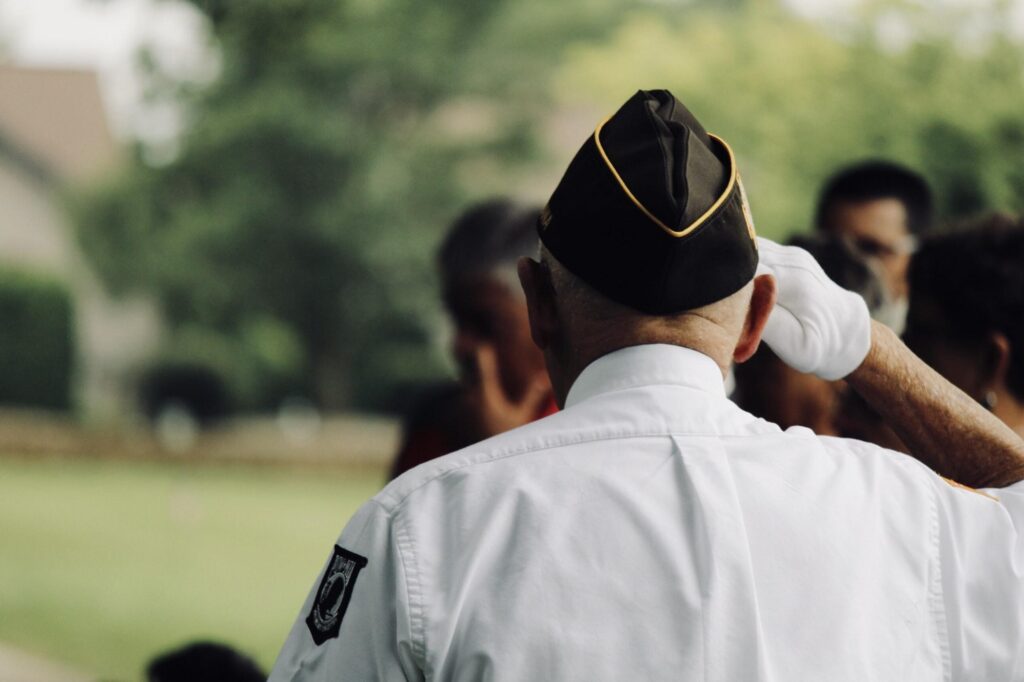Lewy Body Dementia (LBD) affects an estimated 1.4 million Americans over the age of 50. This progressive form of dementia is often difficult to diagnose, and may even be imperceptible to the individual with LBD or their loved ones in the early stages. However, as the disease becomes apparent and continues to progress, appropriate and timely care is a must. Veterans have provided a selfless service to our country, and many qualify for dementia care through the U.S. Department of Veterans Affairs (VA). Here, we share benefits that the VA offers veterans with dementia:
Types of Dementia Care Available for Veterans
The VA offers several care options for veterans with dementia (including LBD). Eligibility and availability vary, so be sure to contact the VA social or case manager to discuss application and copay details. For those who are eligible for dementia care, options may include:
- Home-based primary care. This is an excellent option for those who have a complex set of healthcare needs that make office visits inconvenient. In-home support makes routine care more comfortable and efficient.
- Home health aide care. In the later stages of Lewy Body Dementia, care for oneself becomes challenging or even impossible. LBD affects cognition and causes changes in gait and movement, so assistance with daily activities will likely become necessary as the disease progresses. Home health aide care provided by the VA and overseen by nurses will help veterans with activities of daily living (such as showering, dressing, and meal preparation).
- Adult day health care. Social interaction and recreation are important for all individuals. Veterans with LBD deserve to have companionship and support, and adult day health care provides opportunities for socialization and peer support.
- Palliative care. Veterans have served honorably, and the VA is here to provide services to alleviate pain and improve quality of life. If you or your loved one has been diagnosed with LBD, palliative care may be helpful in managing symptoms and creating a plan of care.
The types of dementia care mentioned here are just a few of the options available to veterans via the U.S. Department of Veterans Affairs. To learn more about eligibility, care availability, and copay, please reach out to your case manager. Need help contacting the VA? Call the toll free line at 1-855-260-3274 or visit this page for more details.
Although Lewy Body Dementia is a progressive disease, appropriate healthcare has the potential to preserve quality of life for those with the condition. If you or a loved one are among the millions of Americans with an LBD diagnosis, you’ll need support along the way. Our team is always here to offer assistance in connecting you with the resources you or your family member needs to thrive. We’re also happy to provide advice, insight, or just have a chat regarding life with LBD. You can contact our help line seven days per week at 516-218-2026 or send us an email anytime.



My brother is in the later stages of Lewy body disease/Parkinsons disease. He is a Veteran and we are looking for care in the home. His wife is unable to handle him alone with pivoting, standing, toileting and their 2 adult children work full time with children of their own. He has been to 2 Memory care centers and in and out of hospitals frequently all in the last month. We would all, as well as himself, like to be cared for at home as the homes say they are not able to care for him.
We are feeling helpless at this point. We are more than willing to assist him as much as possible but we need more help.
Please, any help, advice you can give us, would be more than GREATLY appreciated.
Thank you
Sister of Don Nicoloff
Bernadine (Bernie) Gisher
We live in Troy, IL.
Hi Bernadine,
We certainly understand the care that is needed and your desire to have your brother home. As indicated in the link you are referring to, please call the V.A.’s Caregivers’ Support Line at 1-855-260-3274 so they can help you. I certainly hope they can.